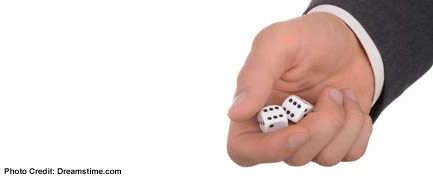Impulsive Gamblers Are More Superstitious, Study Suggests

A rabbit's foot, four-leaf cover, lucky penny or horseshoe charm — compulsive gamblers with high impulsivity are more likely to rely on these to win, a new study shows.
Pathological gambling, also known as compulsive gambling, is a recognized psychiatric diagnosis with symptoms including being unable to resist impulses to gamble and being unable to stop gambling even when losing, which can lead to debt and family problems.
In the new study, researchers used a variety of surveys to compare the beliefs of 30 gamblers seeking treatment at London's National Problem Gambling Clinic with 30 non-gamblers from the general population.
To test impulsivity, the researchers had participants answer financial questions involving trade-offs between smaller amounts of money received immediately (say $20 today) and larger amounts of money available in the future ($35 in two weeks). The gamblers were more likely to choose the immediate reward despite the fact that it was less money. [10 Easy Paths to Self Destruction]
The findings also showed that the gamblers with higher levels of impulsivity were more susceptible to various errors in reasoning known to occur during gambling. For instance, the highly impulsive gamblers had more superstitious rituals, such as carrying around a lucky coin or blowing on a die before rolling it. They were also more likely to irrationally blame their losses on bad luck.
"The link between impulsivity and gambling beliefs suggests to us that high impulsivity can predispose a range of more complex distortions — such as superstitions — that gamblers often experience," study researcher Luke Clark of the University of Cambridge's Department of Experimental Psychiatry said in a statement.
The research, which was funded by the Medical Research Council, also showed that the gamblers acted especially impulsively during high or low moods, which are frequently cues that can trigger gambling sprees. The pathological gamblers from the clinic were seeking help for various forms of gambling, including sports betting, Internet poker or blackjack, slot machines and casino games.
Get the world’s most fascinating discoveries delivered straight to your inbox.
The study was published June 29 in the journal Psychological Medicine.
You can follow LiveScience writer Remy Melina on Twitter @remymelina. Follow LiveScience for the latest in science news and discoveries on Twitter @livescience and on Facebook.


